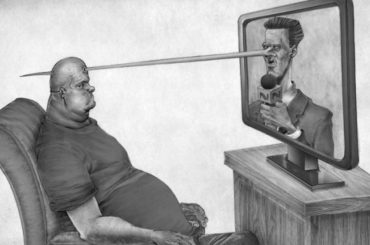Over the past few years, the way we watch TV has witnessed a major shift. Gone are the days when all we had were broadcast channels and over-the-air programming. Eventually, there came satellite TV, which widened the landscape for media consumption, and involved dish receivers catching signals from the orbiting satellites in outer space. It was not until cable TV made its entry and began a new era of television delivery that the content began to grow and high definition programming became possible.
Cable TV remains to be very popular among American viewers. It continues to occupy a dominating position in the market when it comes to the number of subscribers. However, its dominance is currently being challenged by a new type of television delivery system called streaming TV. Streaming TV relies on the availability of a high speed and consistent internet connection to deliver entertaining content over the web to your devices. In other words, without a super-fast and super-reliable internet connection, like Cox internet, you cannot hope to enjoy modern streaming at your home or on the go.

Since almost all of us are using one of the many streaming services available, we are almost always curious about the internet speeds we require to enjoy seamless streaming sessions. This gives us a good insight for choosing the right internet plan to fit our streaming needs and saves us from paying for greater speeds than we might actually require. Thus, here we are to tell you all about the internet speed that can be a good fit for satisfying modern streaming needs. And, if you have subscribed to a 100 Mbps internet plan, then is it a good choice to support online streaming? Well, you will be able to find out after reading this post. Dive in!
What is a Good Internet Speed for Streaming?
These are the most optimal broadband speeds for enjoying buffer-free streaming:
- At least 2 Mbps for TV services like BBC on standard streaming.
- Around 3 Mbps for HD quality streaming.
- A minimum of 3 Mbps or more for Netflix on standard streaming.
- More than 5 Mbps for HD streaming on Netflix.
- For ultra HD streaming, you require internet speeds greater than 15 Mbps on YouTube.
- Ultra HD streaming on Netflix or Amazon Prime Video requires a broadband speed of at least 25 Mbps or more.
What Internet Speed is Good Enough to Stream Movies Online?
Generally speaking, internet speeds that can assure a seamless streaming experience are almost the same, while various streaming platforms might have a slight difference when it comes to the optimal bandwidth speed for uninterrupted streaming of movies and TV shows. The table below will give you a good idea of the recommended internet speeds to avoid any buffering nuisance while streaming online for both standard as well as high definition content:
| Service | HD | Needed for non HD | Full HD |
| BBC iPlayer | 2.8 Mbps | 1.5 Mbps | Not Available |
| Netflix | 5 Mbps | 3 Mbps | 25 Mbps |
| Amazon Prime Video | 3.5 Mbps | 0.9 Mbps | 25 Mbps |
| YouTube | 4 Mbps | 2.5 Mbps | 15 Mbps |
How Much Data does Modern Streaming Require?
Another critical aspect of modern streaming is data consumption. It is best to subscribe to internet plans with unlimited data, so you never have to worry about keeping a track of your data consumption. Keep in mind that streaming TV, particularly in HD, eats up data very quickly. So, if you have a data cap to take care of, chances are that you might hit the monthly data limit before realizing it. For instance, Netflix consumes around 1 GB of data for an hour of video streaming, and if you are streaming in HD, then you should know that it will devour as much as 3 GB of data per hour. For ultra HD streaming, hold tight since it will consume around 7 GB of data per hour of streaming. So, depending on your streaming routine, choose your internet plan wisely.
My Two Cents
No doubt, streaming services like Netflix and Amazon Prime are now our staples when it comes to entertainment consumption. In order to make the most out of your streaming subscription, you need an internet plan of adequate speed and data that can allow fast and buffer-free streaming. The aforementioned discussion suggests that for HD streaming, a minimum speed of around 5 Mbps is required, while for non-HD streaming, a bandwidth speed of around 2 to 3 Mbps will suffice.

So, yes, an internet plan subscription of 100 Mbps is sufficient to satisfy your modern streaming needs, because the greater the number of users accessing the network simultaneously, the higher speeds you will need. 100 Mbps is a good pick for meeting the streaming routines of the entire household.
Credits: auxx.me






